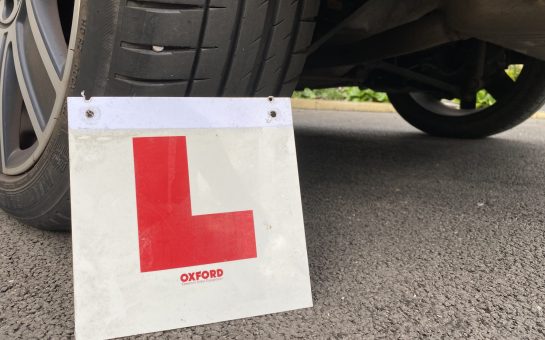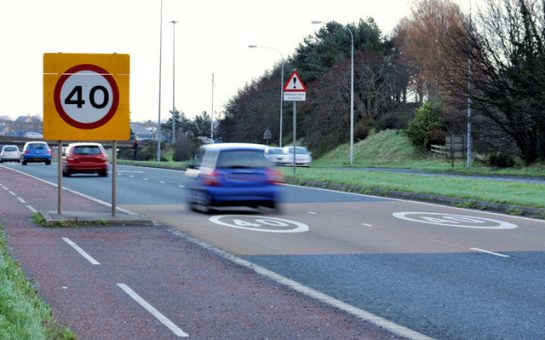It is a nightmare scenario.
You’re making your way back late at night, it’s a long drive, you’re tired. Your eyes feel heavy.
You would stop but you’re nearly there now and you’re determined to get home before midnight. You wind down the window to get some more air in, but it doesn’t seem to help.
It must be only a split second. Barely a blink. But before you know it, you’ve strayed onto the wrong side of the road – and smash. You’ve collided head-on with the oncoming car and instantly killed the other driver.
We all hope that we would never be involved in such a terrible situation. We like to think we would all have stopped for a break if feeling tired.
However what would happen if you didn’t? Thanks to MM’s partnership with Olliers Solicitors, a leading criminal law firm based in Manchester, MM can shed some light on the legal ramifications of falling asleep at the wheel.
——————————-
Hi,
I have been wondering if you could get done for dangerous driving or something if you killed someone when you fell asleep at the wheel?
Are you always responsible for the vehicle?
Thank you.
Name withheld on request of the reader
———————————
Under UK legislation, a person is to be regarded as driving dangerously if ‘the standard of driving falls far below what would be expected of a competent and careful driver and it would be obvious to a competent and careful driver that driving in that way would be dangerous’ (s.2 Road Traffic Act 1988). The same test is applied to careless driving.
As such, the manner of a person’s driving needs to become ‘dangerous’ or ‘careless’. With tired drivers, their standard of driving may be fine right up until the point they actually fall asleep after that it deteriorates and, in some tragic cases, results in a fatality.
The court must first decide whether the case falls under the ‘careless’ category or whether it is serious enough to be considered ‘dangerous’. The tiredness/falling asleep is then considered an aggravating factor to the offence that can increase the seriousness of it and therefore increase the penalty.
Death by careless driving with tiredness as an aggravating factor may be dealt with in the magistrates’ court where they would likely impose a high-level community order but it would more likely be sent to the Crown Court, as any driving offence involving a death is one of the more serious.
‘Dangerous driving’ can go to either court as well however the majority of cases will be dealt with in the Crown (especially where a fatality is involved) which instantly increases the potential penalty due to that court’s greater powers of sentencing.
Other aggravating factors will be considered as well such as whether there was any involvement of alcohol or drugs, any disregard of warnings from other road users, excessive speed, evidence of racing/showing off, driving when you know you suffer from a medical condition that may affect your ability to drive and in the most tragic cases, when more than one fatality occurs.
In some cases, (although probably not in those where falling asleep is involved) mitigating factors can be considered such as if there was a genuine emergency, the speed was not excessive, the offence being due to the inexperience of a driver rather than irresponsibility and these may help lower the penalty.
In the Crown Court, death by careless driving can result in a maximum of five years imprisonment whereas death by dangerous driving carries a maximum of 14 years.
In summary, you can be charged with these offences if you fall asleep at the wheel and there have been many well-documented cases in the media of drivers being sentenced to high-level penalties.
Earlier this month, the Daily Mail reported on a 20-year-old driver being sentenced to six years in prison after his dangerous driving resulted in the deaths of his sister and her fiancé leaving their nine-week-old son an orphan. He was found to be twice over the legal alcohol limit.
In addition to the above penalties, a driver will be given a lengthy disqualification with an order to complete an extended retest. The sentencing for these offences is complicated however and a huge range of factors are considered that cannot be covered here. If you are ever charged with such an offence we would highly recommend seeking legal advice immediately.
Professional drivers (HGV etc) have to adhere to very strict guidelines on how long they can drive without a rest to help avoid accidents.
For other drivers, one must use their own judgement in deciding whether they or not they are fit to drive but you should always err on the side of caution to avoid potentially catastrophic consequences.
Do you have a question for the legal team at Olliers Solicitors?
Their specialist criminal lawyers – including a specialist motor law department – are ready to answer your questions for FREE. All you have to do is email them in to our newsdesk here: newsdesk (at) mancunianmatters (dot) co (dot) uk
You can find more about Olliers Solicitors here.
Image courtesy of Will Butler, with thanks.



